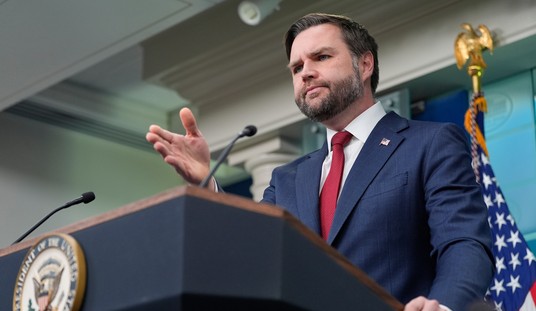A little noticed mandate in Obamacare dealing with the calorie labeling for foods sold at fast food chains has turned into a nightmare for small business.
FDA Commissioner Margaret Hamburg admitted that she “actually thought [calorie labeling] would be one of the more straightforward tasks…but little did I know how complicated it would be.”
If you didn’t know how complicated it would be, why did you write the regulation in the first place?
The calorie label clause, buried deep within the ACA’s 10,000 pages, seems harmless enough at first glance. Each restaurant chain with over 20 locations is required to display the calorie content of each food and drink item it serves on signs and printed menus–with vending machine distributors subjected to the same rules. But the regulation also covers “similar retail food establishments,” a clause vague enough to give FDA regulators sweeping power to determine who does and doesn’t have to comply.
And, of course, the more businesses and industries the FDA can force to comply, the more powerful the agency becomes.
Although the law is designed to target corporate fast-food giants, in practice it will largely affect individual franchises that effectively operate as independent small businesses. For example, over 80 percent of McDonald’s locations are owned and operated by franchisees. Each of these franchisees will now be tasked with complying with the mandate–paying for new signage, removing profit-generating advertisements to make room for the calorie data, updating menus every time recipies change, and accommodating inspectors.
Moreover, the regulation itself is so poorly constructed that it presents unforeseen hurdles for franchisees. Pizzas, sandwiches, and burritos, among other common fast-food meals, can be custom-ordered in hundreds of combinations, and the law arguably requires restaurants to provide customers with calorie data for each. It’s also unclear whether non-traditional food retailers—for example, bookstore cafes, hotel minibars, and food trucks—will be subject to the labeling requirements. Furthermore, it’s unclear what penalties restaurateurs will face if they inadvertently fail to comply.
The regulators couldn’t envision having to list the ingredients for dozens of combinations found in a Burger King Whopper? Or a pizza? I suppose these guys don’t order out much, huh.
This mess of red tape might have a better case if calorie labeling was effective in combating obesity and raising general nutrition awareness, but multiple studies have found that this simply isn’t the case. A study of mostly low-income adults in Philadelphia, which recently enacted its own calorie labeling mandate, found that the regulation had no effect whatsoever on fast-food consumption, and that two-thirds of McDonald’s customers didn’t even notice the labels. The same research team, led by an NYU Medical School professor, found similar results in New York City. Now, the federal government expects different results nationwide.
Perhaps the definition of government stupidity is trying to do something that everyone outside of government knows won’t work. The calorie labeling mandate is not one of the more expensive regulations government will issue this year. It’s impact will in the millions of dollars, not tens or hundreds of millions.
But if you’re a small vending machine company with limited resources to make sure you’re in compliance with a complicated and burdensome law, it might mean the difference between making a profit or going bankrupt.
Let’s face it. People shouldn’t be eating a lot of fatty foods. And as far as nutrition, it doesn’t get much worse than a big hamburger or pizza chain. But calorie labeling does little good if no one cares enough to read the information. The proper response to obesity is consumer education. And plastering a store or restaurant with confusing and mostly useless information about a meal doesn’t contribute to that goal.
The kind of labeling the FDA wants can be put into a book that consumers can ask for, or better yet, placed online. That would be far less burdensome — and less expensive — than the nanny state response by the FDA of calorie labeling.










Join the conversation as a VIP Member